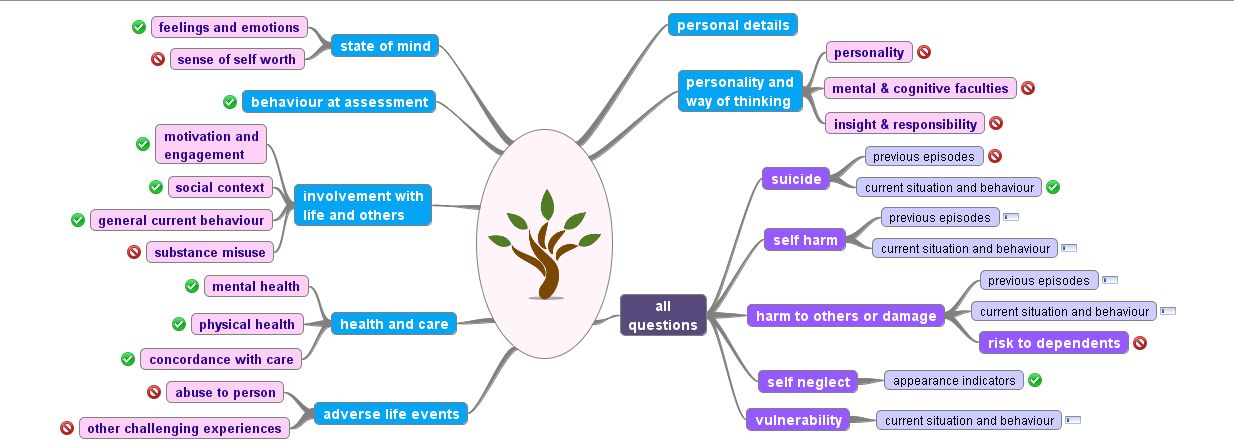Mental Health Concern provide specialist mental health services to over 2,600 people across the North East each year. Following a workshop at their head office in Newcastle, MHC have chosen to adopt the GRiST assessment service as part of their risk management strategy.
Part of the Concern Group, Mental Health Concern support people stepping away from specialist mental health services as they re-enter work and education, and those requiring long-term help to recover from severe mental ill health. Their services include 24-hour adult and dementia nursing, supported housing, community wellbeing and social prescribing. The service user is at the heart of what MHC do, with support tailored to their needs and focused on their outcomes.
Effective risk assessment is critical when supporting those with severe or complex mental health difficulties and ensuring a sustainable recovery. eGRiST delivered a workshop at Buttress House, Newcastle, to demonstrate GRiST to the Mental Health Concern team. The demo was well-received, and Mental Health Concern have now started to use GRiST to assess risk in their service users.
GRiST offers a number of advantages over other risk assessment services. As a web-based service, it can be accessed online through a web browser. Assessment data is stored on a secure server, allowing past assessments to be easily viewed and enabling automated data analysis. GRiST can highlight key risks and factors affecting them, and carry over specific data from previous assessments if there has been no change. Assessments can be transferred between practitioners within a service, or across services when a service user transitions, improving continuity of care while reducing administrative burden.

Mental Health Concern practitioners were particularly excited by GRiST's Mind Map interface. At the start of an assessment, the practitioner can choose to complete the assessment in the form of a mindmap, rather than a conventional sequence of questions. The same set of questions are presented, but as they are presented in an interactive, visual, format, the practitioner and service user can pick areas of concern in any order they like. In this way, GRiST can serve as not just an assessment but also an intervention: the practitioner and service user collaborate on the assessment, and they can discuss issues as they arise.
GRiST also goes beyond standard risk assessments by assessing holistically, including factors such as lifestyle and general wellbeing. This enables practitioners to identify factors which contribute to or protect against risk, and these can later be used to develop a comprehensive, personalised risk formulation.
We hope GRiST will make a positive impact for service users of Mental Health Concern. We will be in close contact with MHC, and their feedback will help to guide our future development efforts.
